"Now when I say Get it, I Want you to Shake That Thing!"
[A brief overview of Blues Piano and the folks who played it]
At the turn of the century, the Eastern seaboard, from Virginia to Texas, was dotted with lumber camps. These lumber camps provided the raw materials needed to rebuild a nation that The Civil War had [at the very least] badly disfigured, or in the case of The South, literally reduced to ashes. Along with rebuilding, the nation was undergoing a great industrial revolution, necessitating the massive expansion of railroad systems. The need for timber had become a top priority, and a national chain of lumber camps grew up overnight.
The Lumber Camps
Although these camps were technically governed by state and federal laws, in reality, since they existed, many miles deep into the woods, and away from the rest of society; they functioned under their own laws, and were far less concerned with the moral fiber of their "citizens"; anyone willing to work long, grueling hours, under minimal safety considerations were welcomed. Often these camps were run by private companies, with little concern for the health and wellbeing of the lumberjacks; in turn, where you came from, your criminal records, etc., were of little concern, as long as you could swing an axe for ten hours a day.
The Railroads
Long before the days of logging trucks, these camps depended on railroad lines to get their product to town. Indeed their entire existence revolved around the railroad. Aside from shipping timber, railroad cars were often used as dormitories, mess halls, and on weekends, hastily constructed saloons. These saloons featured untaxed whiskey served in large barrels, at least a couple boxcars worth of local working girls, and over in the corner, an upright piano. Very few of the lumberjacks were, musically inclined and the first circuit for itinerant piano players was born. These players played loud, fast and long; their left hand imitating the familiar chugging rhythm of the train, while the right hand often banged out simple counterpoint phrases.
The style was known by such colorful names as Dudlow Joe, Texas Stomp, Drive 'Em Down, and ultimately, Boogie Woogie. The men who played this style had equally colorful names: Romeo Nelson, Raghead, Three Finger Sam; There were very few named Neil. Most of them could fight as well as they played, and were often forced to when confronted by drunken patrons. In these places the piano man was more than just a musician: he told stories, relayed the latest news from other lumber camps, and often managed the financial affairs of the "working girls."
Rent Parties and Life in the City
Although the style may have originated in the lumber camps, it wasn't long before this rough, crude style found its way into the cities. Indeed, it became the favored style at rent parties, and in little hole-in-the-wall saloons. It was still looked down upon by more educated players, and wasn't even accepted in the brothels where Jazz and Stride were played. Boogie Woogie, and Blues piano grew up in the places where the pimps, prostitutes, and drug dealers went when they got off of work.
THE Concert
In 1938 Albert Ammons, Meade Lux Lewis and Pete Johnson performed at Carnegie Hall, a performance promoted by John Hammond, which started a whole new craze into blues piano, especially boogie woogie, lasting a long time into the period of the 50's....and the birth of Rock n' Roll. To me, the three above mentioned artists, are some of the greatest to ever live. Their blues style piano made its way into all of the prevalent music genres of the time; Swing, Jazz, Country etc. It was being heard everywhere - at President Harry Truman's inauguration, on TV and of course, the famous Cafe Society Club.
Sweet Home (to some)
As you can tell, I have affection, make that a passion for the blues and boogie woogie. However, when you mention blues piano to most blues fans, they traditionally think "Chicago Blues." It did come to Chicago with the Great Migration, a human TIDAL WAVE of 6.5 million Southern Blacks moving from the South up to "Sweet Home Chicago," and the other industrial cities of the North. Chicago became the home of a loud, raucous style, mainly due to the constant noise of the big city. Guitars and harmonicas were amplified and the piano became an integral part of the band, a supportive instrument, with licks and fills derived from boogie woogie. It often served in call and response patterns with the singer or guitarist, and every piano player had his [or her] own, in the words of Sunnyland Slim, 'Trickerations." Only the strong survived. These players were not art school graduates looking to play authentic "roots" music. For most of them, music was only one more means of survival, and the least likely to land you in jail. Sunnyland was a moonshiner, several were professional gamblers, and many of them served, once again, as 'financial managers," for young women fresh from the country. No matter what their side occupation, when it came to piano, they didn't fool around. You quickly knew where you stood during this period. The best rose to the top, not only because they were just better, but because certain bands, who knew they could do a better job, would literally take over your gig at pistol point, or with a knife in your back. It was cut throat, literally. A few notable Chicago blues piano players include Jimmy Yancey, Roosevelt Sykes, Sunnyland Slim, Lfayette Leake, Memphis Slim, Otis Spann, Big Maceo, Little Brother Montgomery, and Pinetop Perkins.
From the Lumber Camps to the Suburbs of Savannah
It was a family gathering on a Spring Sunday afternoon when I was first invited to play publicly. I was 10 years old and after being ushered up to the piano, I nervously fumbled my way through the classic "Fur Elise." As I finished playing, I was welcomed by loud applause, hoots, hollers and whistles all around; except from my Grandfather Jesse Wainwright. He was not the least bit impressed. Having played the piano his entire life, boogie woogie and honky tonk, he was almost displeased by what he heard and said a few things to me that I can't repeat here as he walked over and sat next to me on the piano. His left hand slammed down on the piano, interrupting the warm family support, growling and rumbling like thunder. His right hand started to fiercely attack the upper register, jack-hammering the notes with the confidence that only 50 plus years of playing beer joints can produce. He smiled as he watched my reaction, no words were necessary, he knew I was hooked.
Blues piano is an aural, as well as an oral tradition, now passed along mostly from mentors to apprentices. My Grandfather and Father were my first musical mentors.
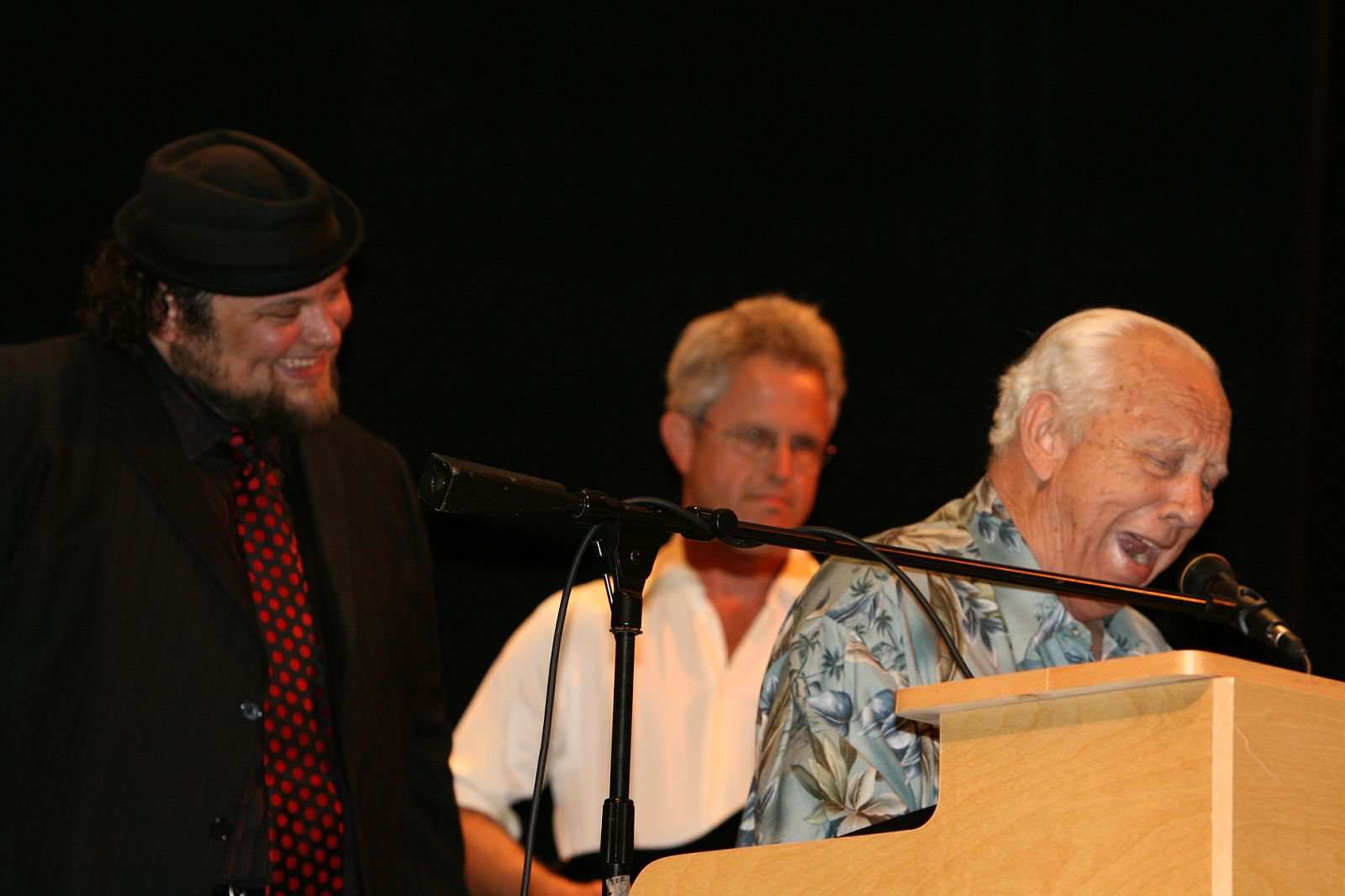
The legendary Pinetop Perkins is of course very close to my heart as well, for the simple fact that I got to see him perform so many times as a child. I also got to play and just hang out with him over the past few years, him showing me things on the piano I didn't think could be possible, and I felt I could call him a friend.
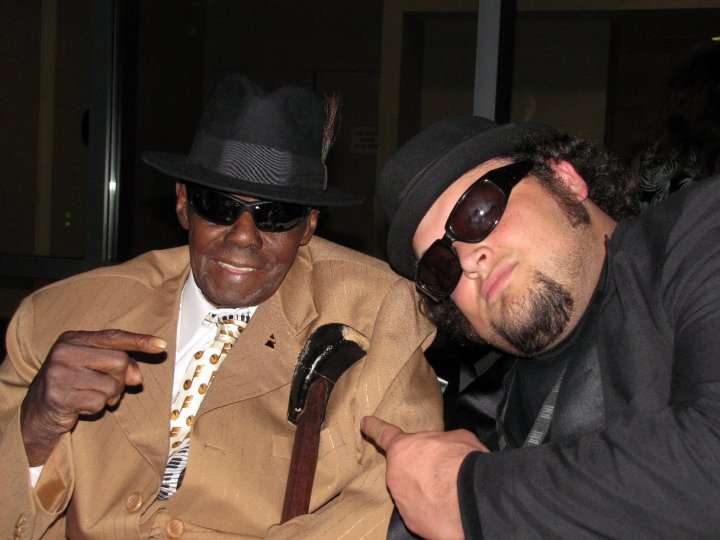
As with my family, and the late Pinetop, they made it a point to pass along a tradition, much like Sunnyland Slim and the Reverend Billy C.
Wirtz. The Reverend is definitely a mentor of mine, as well as a dear friend who I've learned a great deal from, and played many nights with, but before Billy C. Wirtz was showing me the intricacies of blues ballads and eight-to-the-bar stand up on the stool and shout it boogie woogie, he was himself being mentored by the amazing piano player legend Sunnyland Slim. 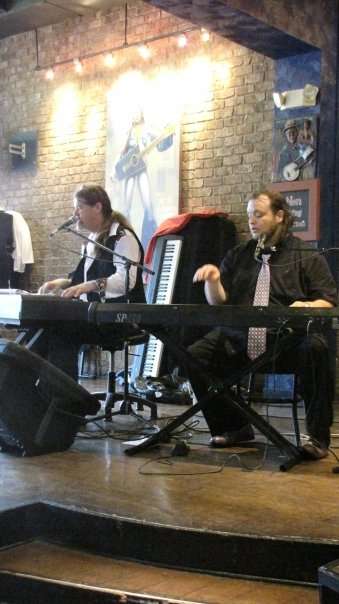
My good friend Eden Brent, another fantastic blues piano player, was apprenticing under the late great blues pioneer Boogaloo Ames, giving her the moniker "Little Boogaloo."
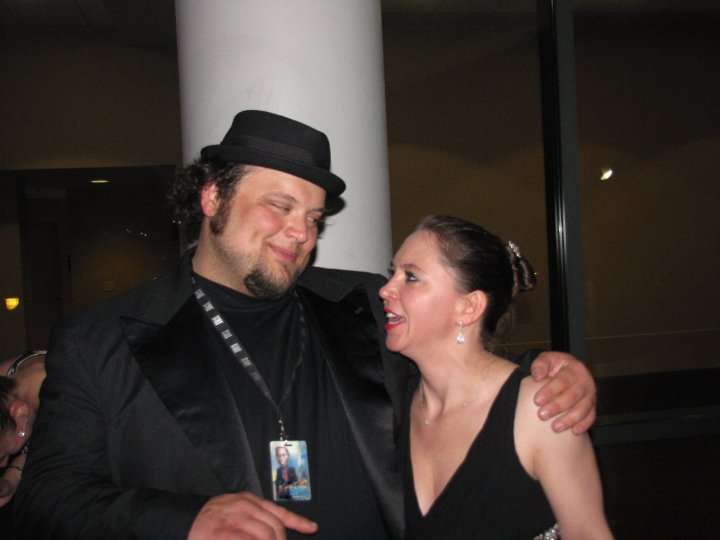
David Maxwell, yet another friend to us all, and maybe the greatest living blues piano player I know, was friends with and learned much from the one and only Otis Spann. And so, the torch stays lit.

Support
As with blues music as a whole, the best way you can ensure that this tradition keeps being passed from generation to generation, is to come out and see it live! September 9th-11th, is your chance to catch a whole bucket full of blues piano. The Second Annual South Florida Boogie Woogie Piano Festival, will be packed full of GREAT piano players, playing a wide variety of styles within the blues genre. It's being hosted by another friend of ours, Piano Bob, a great gentleman and fantastic piano player.
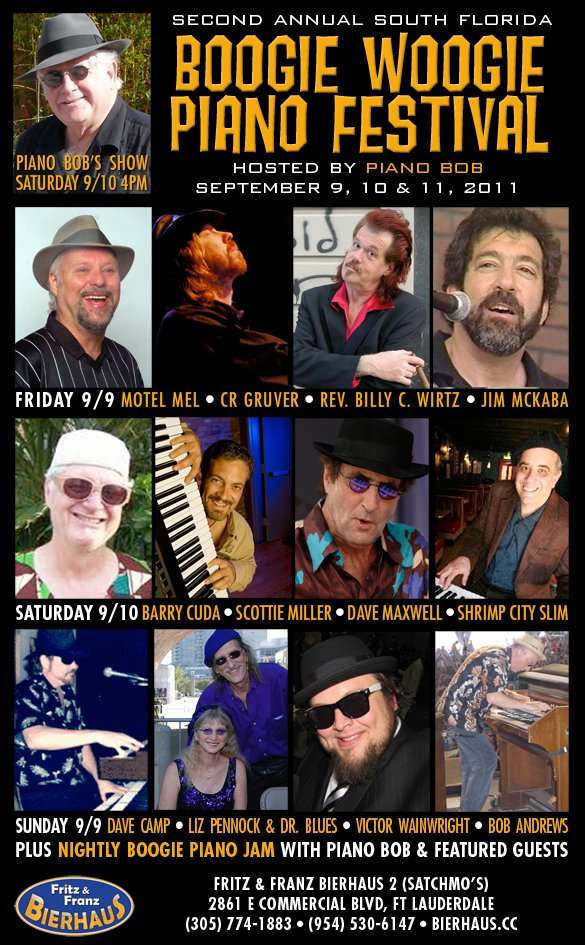
It's going to be my honor to headline Sunday night, September 11th, the tenth anniversary of an unspeakable tragedy that changed all our lives forever. This will be more than just a gig; It will be a perfect night for the blues as we remember those whom we lost, and a great night to celebrate the spirit that keeps us smiling though our tears. It is occasions like this that remind us that great music is not a luxury, it is a necessity.
In the words of the late poet Fran Landesman:
Music starts us weeping
When no one is around
Music fills the darkness
With visions made of sound
Music travels with us
A witness and a crutch
Music reaches places
That nothing else can touch
See you There!
Victor Wainwright and The Reverend Billy C. Wirtz
This was fantastic Victor! Really enjoyed reading it
ReplyDeleteAnd thanks for posting the review...
We need to talk..call me when you can